What is Naturopathy?
Naturopathy can be defined as a holistic way to health that treats body, mind and spirit without the use of drugs or surgery. Healing comes from nature. Naturopathy involves the usage of herbs, diet, exercise and massage to both prevent and cure diseases.
As it is said “Nature itself is the best physician”- Hippocrates
One can call Naturopathy a kind of healthcare that is a combination of both modern cum traditional methods of medicine to cure ailments.
Recommended Story – Sujok Therapy and its Many Benefits
Principles of Naturopathy

Following are the 6 principles of Naturopathy :
1. Do No Harm
- Use methods and medicinal substances which have minimal side effects on the body
- Avoid harmful suppression of symptoms wherever possible
- Work with an individuals’ self-healing process
2. The Healing Power of Nature:
- Naturopathy emphasizes that the natural world in assisting the healing process
- Naturopathy utilizes substances that originate in nature
- The treatments are based completely on nature and its mechanism, since there are no side-effects but long-term benefits.
- It is the Naturopathic physician’s responsibility to find and fix the obstacles of growth, vitality, and improvement in a person.
3. Identify and Treat the Causes:
The Naturopathic physician’s work is to locate and remove the underlying cause of illness than merely suppressing or eliminating the symptoms.
4. Doctor as Teacher:
- It is essential to learn about your own body, the healing process and how to approach the issues you are facing from your Doctor.
- A naturopathic Doctor has the role of an educator, it is his duty to teach his patients to treat themselves.
- The Doctor teaches his patient how he can maintain a healthy lifestyle with good food, exercise, spiritual well-being, environment, relationships, posture, hygiene, and sleep.
5. Treat the Whole Person:
- It is said both health and disease are conditions of the whole organism, which involves a complex interaction of physical, spiritual, mental, emotional, genetic, environmental, and social factors.
- The Naturopath must treat the whole person by taking all of the above factors into account.
- It is only when all the above-said factors function harmoniously a person can recover from the disease.
- A personalized and comprehensive approach is required by the physician to diagnose and cure the patient
6. Prevention:
- The main goal of Naturopathic medicine is prevention
- This is accomplished through education and the promotion of good lifestyle habits
- Naturopathy emphasizes building health rather than fighting disease
- As one can’t be healthy in an unhealthy world, it is the responsibility of both physician and patient to create a healthier environment to live.
Therapies used in Naturopathy
1. Hydrotherapy

Hydrotherapy is a treatment that utilizes water to cure different types of diseases and their associated aches and pains. In a few cases, the treatment involves the use of hot water, while in some cold water is helpful. This type of water treatment involves procedures that include immersing the patient in water or combining the water with oils and herbs to cure the patient.
Recommended Story – Aromatherapy For Mind, Body & Soul, Specialists In India
Types of Hydrotherapy
a) Jacuzzi
In this the bathtub is equipped with a powerful water pump, which produces a strong jet stream of water within the tub.
Use – Body massage, muscle relaxation, tension relief, and increased blood circulation to the skin thereby removing the toxins from the skin. It enhances the functioning of both the heart and lungs.
b) Hydro Jets
It is a tub of hot water which uses jets of forced air to produce currents and bubbles, for medicinal purposes.
Use– This helps in reducing arthritic pain, tendonitis/bursitis and inflammation due to sports injury and overexertion. This is very helpful for people suffering from respiratory ailments, such as congestion, chronic bronchitis, and asthma.
c) Whirlpool Bath
This is a bath where a huge circular tub is used. This is equipped with powerful water pumps, to produce a powerful whirl in the tub.
Use – Helps in lessening arthritic pain, tendonitis/bursitis and inflammation due to sports injuries and overexertion. It is useful for people suffering from respiratory ailments.
d) Colonic Hydrotherapy/Enema
This is a detoxifying treatment that involves a soothing, gentle flow of filtered & temperature-controlled water throughout the colon to flush out waste material.
Use – Elimination of body toxins, restores tissue and organ function and rebalances the body chemistry
e) Immersion Bath
In this the body is either locally or wholly immersed in water of different temperatures. Temperatures vary according to the season and patient’s condition.
Use – Get relief in fever, strokes, muscular dystrophy, paralysis, skin ailments, diabetes, digestion etc
2. Mud Therapy
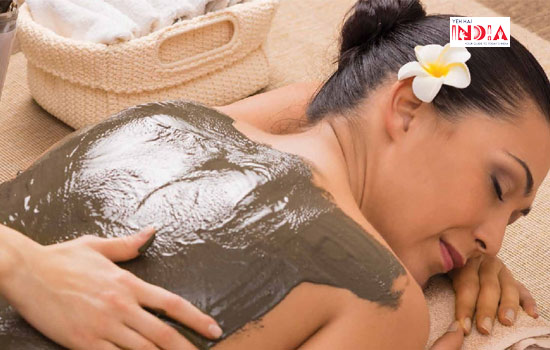
Mud contains important minerals which have a positive effect on human health. Mud has the property to absorb toxins from the human body; therefore, it is instrumental in preventing many diseases. It also has healing properties i.e., it helps in cooling and relaxing the body.
Mud therapy is used in two forms-
- Mud Pack
- Mud Bath
Mud pack for eyes– It reduces irritation, itching, allergic conditions such as conjunctivitis and haemorrhage of the eyeball. It also helps in correcting Myopia and Hypermetropia. It is useful in glaucoma, where it reduces eyeball tension.
Mud pack for the head – It helps in improving the skin complexion and reduces the dark circles under the eyes.
Mud pack for abdomen– It helps in getting rid of indigestion, decreasing intestinal heat and stimulates peristalsis.
Mud Bath– Increases blood circulation and improves skin complexion.
3. Fasting Therapy
Naturopathy believes that the root cause of most diseases is the accumulation of toxic matter in the digestive system. Fasting gives some rest to the digestive organs leading to good health and efficient working of the digestive system.
Use – Removes toxins, waste materials and dead cells. Fasting helps treat disorders like indigestion, gas formation, obesity, asthma & high blood pressure
4. Reflex Therapy
This therapy involves applying pressure to the hands, feet, or ears with thumb, finger, and hand techniques without using oil or lotion. It is believed that different areas on our hands and feet correspond to other parts of the body, and massaging them stimulates the parasympathetic nervous system to heal by itself.
Use – useful in increasing circulation, for migraine, back issues, asthma, digestive and period problems
5. Nutrition
Naturopathy believes diet is one of the necessary components in managing diseases. Eating natural foods cleanses the body and also helps in keeping diseases at bay. The diet should be alkaline rich. Acidic food builds toxins in our body, which makes our body prone to various ailments. People should always consume fresh food.
Naturopathy has divided the diet into 3 categories-
- Eliminative Diet: Juices, soups, tender coconut water, buttermilk, and wheatgrass juice.
- Soothing Diet: fruits, salads, steamed vegetables, sprouts, vegetable chutney, etc.
- Constructive Diet: wholesome flour, unpolished rice, little pulses, sprouts, yoghurt,
This diet can keep us healthy and disease-free
6. Naturopathic Manipulation
The Naturopathic physician uses gentle force, to manipulate spinal segments and joints to re-establish normal movement and function. Naturopathic manipulation helps in the correction of these misalignments.
Use– Neck pain, backache, frozen shoulder, headache, shoulder pain, high blood pressure, Tennis Elbow etc. It helps to correct these alignments.
7. Acupressure
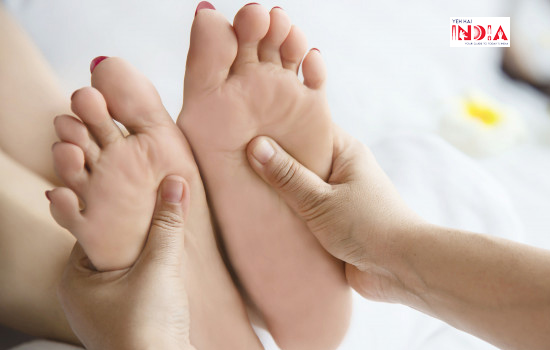
This is done by using the thumb, finger, or knuckle to apply gentle but firm pressure to specific points on the body which influences the autonomic nervous system. Acupressure helps in alleviating pain and fatigue and addressing musculoskeletal problems.
Use – Helps in relaxation, restores body balance, helps to destress and stimulates the circulatory and lymphatic system
8. Massage Therapy
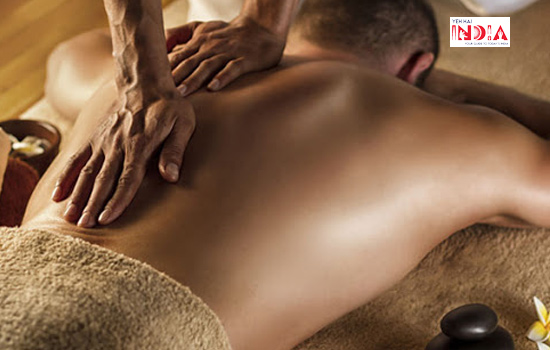
Massage helps in improving blood circulation, providing strength to body organs, and helps in regenerating muscles. Massaging the body with oil is beneficial and has therapeutic benefits. The oils which are used in massage are mustard oil, sesame oil, coconut oil, olive oil, and aroma oil. The process of massaging helps in activating all the body organs.
Use – Tones muscles and nervous system, delays ageing, eases pain and stiffness, improves circulation and respiration
9. Yoga and Pranayam
The Yogic postures, pranayamas, meditation, and relaxation techniques help in overall wellbeing. Pranayama is the regulation of inhalation and exhalation of breath. Proper regulation keeps the body fit and free of ailments.
Use – It helps in detoxification, regeneration, and rejuvenation of the body and mind. Pranayama brings about mental tranquillity. It helps keep mental stress at bay.
10. Botanical Medicine
Naturopathy utilizes various plant parts for healing purposes. These include the flowers, leaves, roots, stems, berries, fruits, seeds, bark & rhizome.
Use – These are useful in treating several ailments without side-effects.
11. Counselling & Lifestyle Modification
Naturopaths are trained for active listening, body language assessment, and other interpersonal skills necessary for the therapeutic relationship.
Finding & understanding prevalent psychological issues such as developmental problems, sexual dysfunction, abnormal behaviour, addictions, and stress.
Different kinds of treatments are given which include hypnosis and guided imagery, counselling techniques, correction of underlying organic factors, and family therapy.
Benefits of Naturopathy

- Disease prevention
- Treatment of disorders
- Sleeping aid
- Alternative therapies.
- Increases self-awareness
- Changes the way one thinks
- Safe & effective treatment
Don’t think twice going for Naturopathy is wise.
Also Read – What is Past Life Regression Therapy and Top Practitioners in India


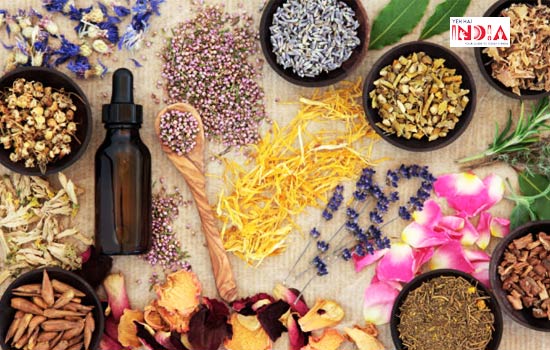




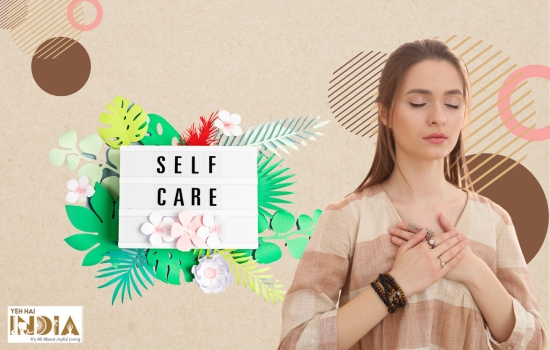
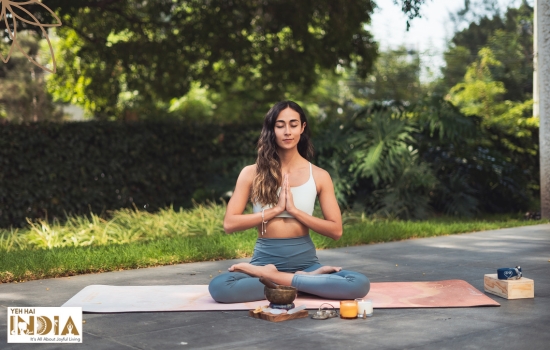
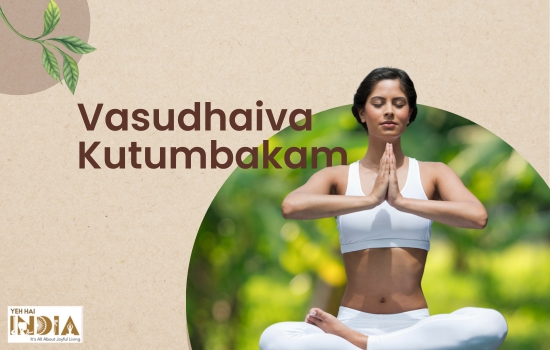

Preeti, You are a born teacher .. your articles are well organised and well written , exhaustive and detailed .